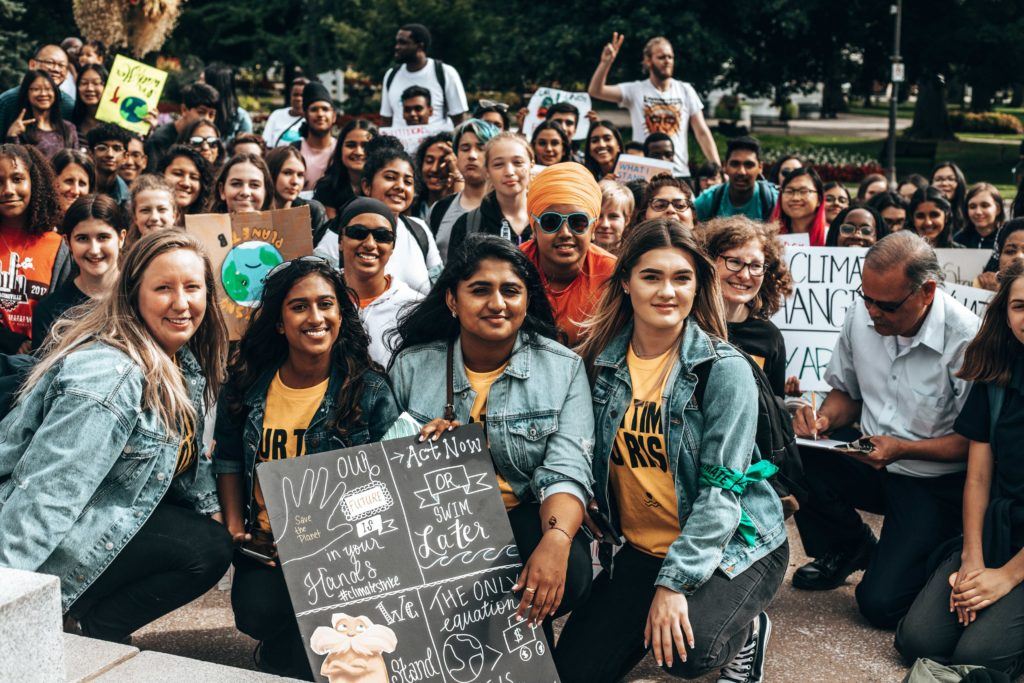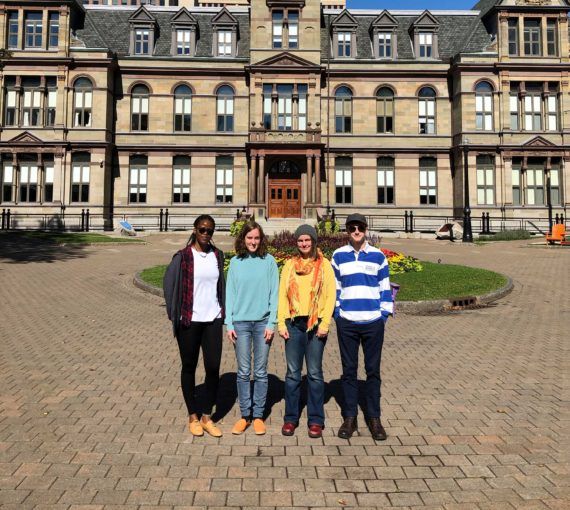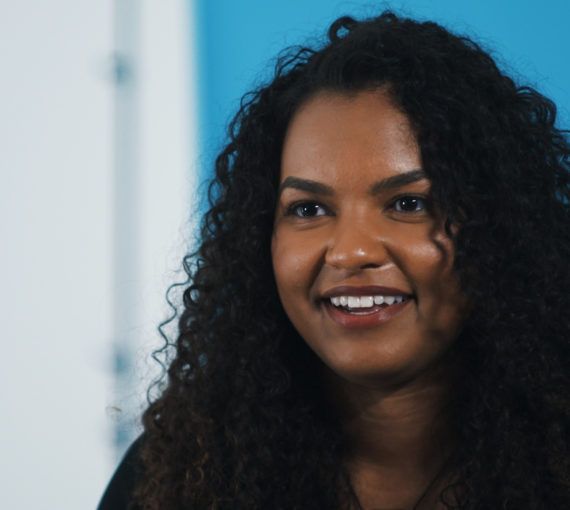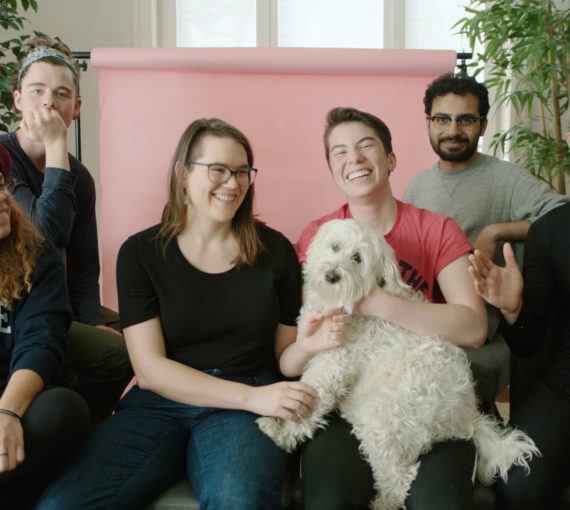
Some of the Community Climate Council founders at the fall 2019 climate strike in Brampton. (Photo: Samantha Casey)
Divya Arora is one of the founders of the Community Climate Council, which supports community and youth-led solutions to climate issues in the Peel Region. Currently working on her masters in environmental studies at the University of Waterloo, she joined the David Suzuki Foundation in fall 2020 as part of the Gaptivism program.
In this interview, Divya shares her experiences of helping lead the youth climate movement in the Greater Toronto Area and some advice for people who want to work with their municipal councils on climate action.
Tell us a bit about the Community Climate Council: What is it, how was it founded and what kind of work do you do?
The four other co-founders of the Community Climate Council and I were part of the first cohort of Youth Challenge International’s Innovate MY Future program, along with 100 other youth from the Greater Toronto and Hamilton Area. That’s where we met and became engulfed in this captivating energy and passion for youth-led climate work.
The five co-founders — or the Climate ChangeHERS, as we called ourselves — dove deep into environmental advocacy and action in Peel Region. We were introduced to systemic problems that present barriers to local climate change mitigation and adaptation, and at the time we didn’t know how we could make a difference in all of that.
But we knew we wanted to do something, so we did what we could. We set up meetings with Peel Region staff, organized Brampton’s first climate strike (as part of the Global Climate Strikes in 2019), delegated at a regional council meeting in support of the region’s Climate Change Master Plan and took part in opportunities that kept unfolding for us because we were showing leadership and people were gravitating toward it.
What started off as a short-term project turned into what is now known as Community Climate Council, a local ENGO that aims to empower communities to take climate action. Today, we have about 30 volunteers, and we dedicate our time to research, education and communications to enhance community awareness and resilience, and political advocacy to inform policy-makers of youth experiences and concerns.
We weren’t experts in the field, and we didn’t have a ton of experience with nonprofit or community organizing, but we hold a compelling vision for the future, which we continue to strive for.
What is your vision for the future?
In the short term, I envision a continued and growing momentum, spearheaded by youth and guided by Indigenous-led and solidarity-focused actions, which will strengthen the climate movement. In the long term, community action is important but will not be enough; we will need this same leadership from corporations and all levels of governments. Hopefully, people will drive the economic and political shift we need.
You don’t need to wait for the right time, the right tools, or the right background to make a change. If you put your passion out there, there will be people who share your beliefs and will support you.
Divya Arora
Tell me a bit about your work with city councils in Peel Region.
We first started working with the City of Brampton in November 2019 as an emerging grassroots group. We were invited to be a key stakeholder for the development of the Community Centre for Energy Transformation. We also became members of Brampton’s Grow Green Network. Since then, we’ve delegated at two city council meetings and continue to stay informed about the city and council’s work so that we can have discussions with policy-makers. We aim to build our presence as political environmental advocates in Mississauga and Caledon as well. We plan to delegate in support of Caledon’s Climate Change Action Plan when it’s presented to the town council.
Tell us about a moment when you felt like you really were making a difference.
A highlight was the climate strike we organized. The five of us had no idea how we’d pull something like that off or how many people would show up. We made a simple Instagram graphic for promotion and an Eventbrite page, and we hoped that people would show. Even before we got there, the people who signed up had already organized themselves along the street with their signs. We drove past them in shock, and we all turned to each other and said, in disbelief, “We did this. They are here because of us.”
Then we all marched around city hall and shouted climate chants, and most people wanted the microphone to share why they had come and how they felt. I share that moment because it was a very powerful morning, but I also hope that someone reading this will understand that you don’t need to wait for the right time, the right tools or the right background to make a change. If you put your passion out there, there will be people who share your beliefs and will support you.
What advice would you give folks who want to work with their municipal governments?
Don’t wait until you have all the right credentials and experience. Don’t wait until you’re part of a group. If something troubles you, voice your concern to your local government. It can be very overwhelming for the average person to speak with their local elected officials, but it shouldn’t be. Elected officials are simply representatives of their community, and they are there to listen to you.
Before I started working so closely with the local government, I also had these fears and misconceptions: I thought I didn’t have the power or the right background to speak to my elected officials, and I didn’t have the tools to reach out to them. Eventually I realized that these worries didn’t matter. What matters most when talking with policy-makers is the passion you bring to the discussion.
I would recommend that youth volunteer for their elected officials so they can learn about the inner workings of the government and also build a personal relationship with their representatives. That way they’ll feel more comfortable approaching them with their concerns and questions.
Renewable energy is empowering communities across the country. Charged Up is the story of you — of all of us — on a mission for a cleaner, healthier charged-up Canada.



